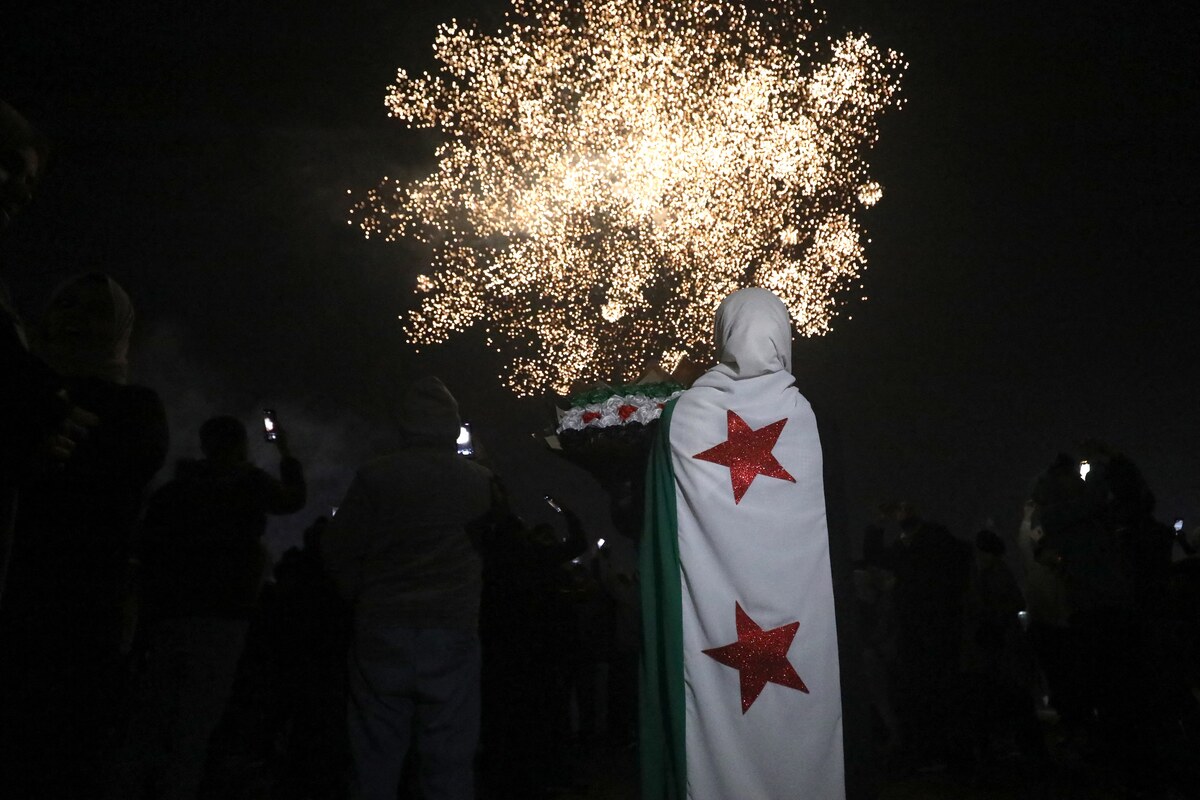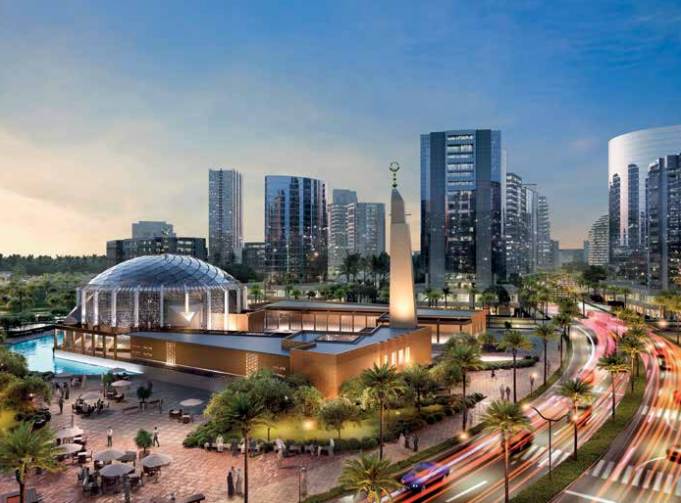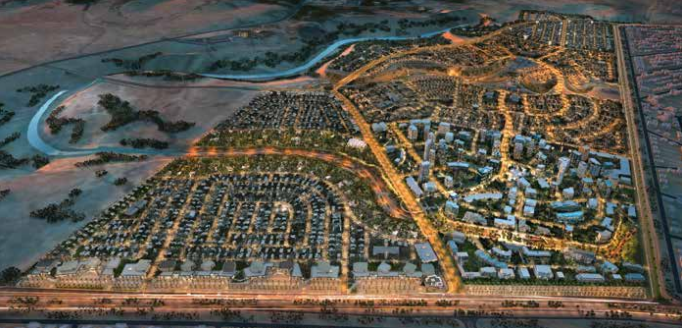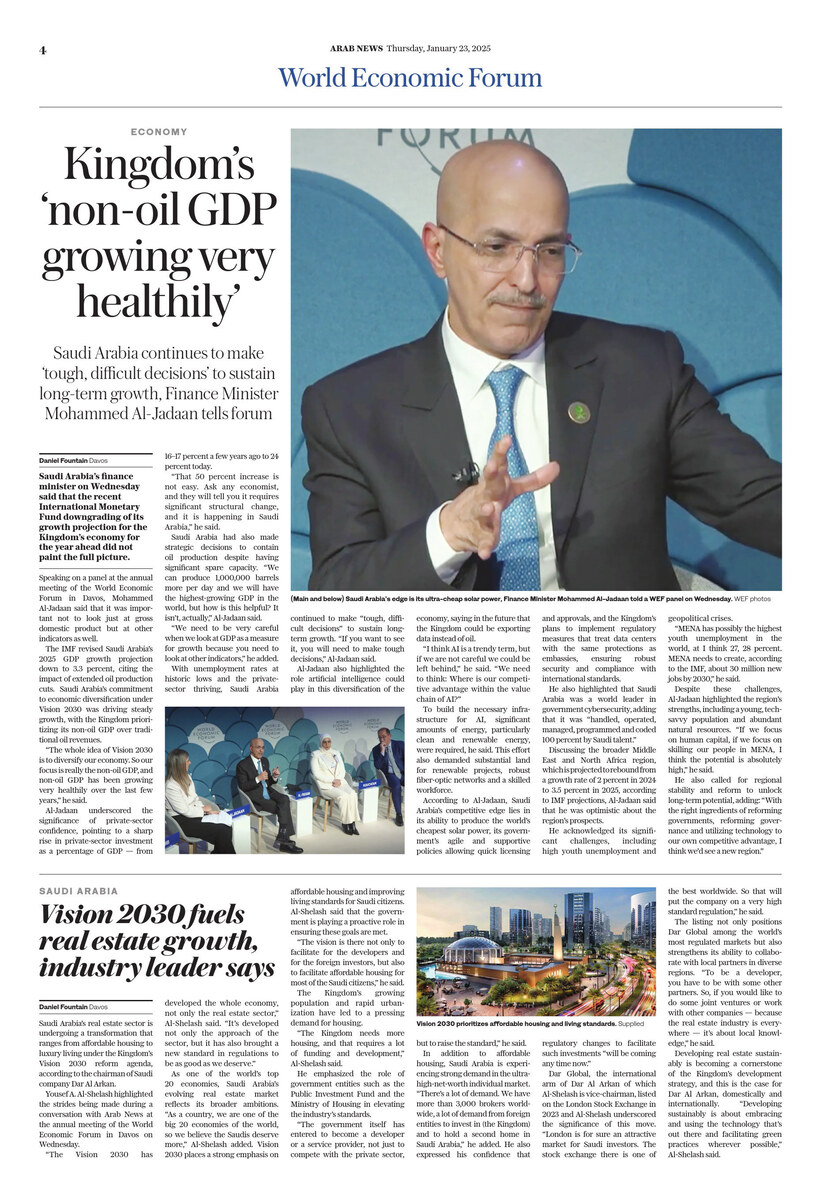RIYADH: The cultural landscape of Saudi Arabia is being enriched as the entertainment sector undergoes significant expansion.
The ambitious Saudi Vision 2030, which strives to diversify the economy and increase global engagement, is the driving force behind this broader cultural transformation.
One prime example of the Kingdom’s initiatives aimed at propelling the entertainment sector is the Qiddiya giga-project.
Launched in 2018 under the leadership of King Salman bin Abdulaziz, Qiddiya is an emerging capital for entertainment, sports and culture that aims to build destinations, programs and initiatives based on the power of play that will enhance the quality of life of visitors and residents.
Qiddiya’s role in propelling the Kingdom’s entertainment sector
Qiddiya is just one of several large-scale entertainment projects in the Kingdom but, dubbed the “Capital of Entertainment, Sports, and the Arts,” there is no doubting its importance as one of the cornerstones of the sector.
Canadian company AtkinsRéalis is the lead design consultancy for the project, and the firm’s Global Director of Creative, Theming and Show Design Bradley Caruk set out his vision for Qiddiya to Arab News.
“Having worked in the global entertainment industry for the past 25 years, I have learnt we are all the same. Everyone wants to have fun. With major innovative parks like Six Flags Qiddiya City, we have the unexpected – a fully immersive story-driven theme park experience,” he said.
Caruk added that the attraction will have “the world’s tallest, longest, fastest rides”, and said: “We even support the storyline further by including original music compositions.”
Sector expert Jamie Ryder, a partner at Entertainment & Media Industry Group at law firm Reed Smith, told Arab News that Qiddiya has a huge amount of “disruptive potential.”
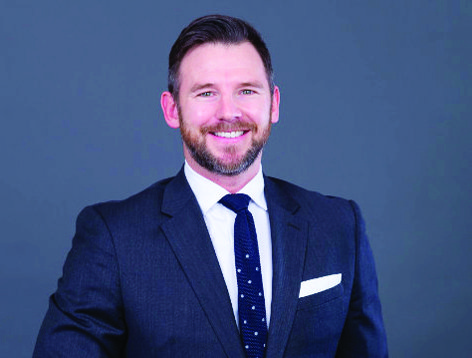
Jamie Ryder
He said: “In terms of Qiddiya’s disruptive potential, this is immediately clear when considering the sheer scale of the development. When complete, Qiddiya will be home to over 600,000 residents and aims to attract 48 million visits per year.”
Ryder continued: “In addition to the specific, innovative – and in the case of Dragon Ball theme park – world’s first attractions Qiddiya will host, the focus on ‘play’ throughout the development, and the ability to host major sporting and entertainment events in cutting edge venues means that Qiddiya’s disruptive potential is significant.”
Partnerships that Qiddiya has established with local or international entities
Of those collaborations and partnerships that have been announced so far, it is very easy to quickly see the alignment with various elements of the Vision 2030 as well as reflecting the fact that Saudi society is a young, connected and vibrant population.
Ryder highlighted the Dragon Ball theme park – based on the popular Japanese animated series – as something that will appeal directly to young people in the Kingdom and beyond.
“Anime is incredibly popular in KSA with Saudi reported as having the largest share of anime viewers worldwide,” he said, adding: “With the UAE second in the world rankings for anime viewership, this promises to be a popular attraction enticing tourists from across the region.”
Ryder also cited the Six Flags theme park being the first outside of the Americas appealing to both Saudi youth and visitors.
He said one of the jewels in the crown of Qiddiya will be the Speed Park Track, which garnered significant attention in the motor racing world when the design was unveiled. The attraction comes as the popularity of Formula 1 in the region grows.
“Add to this mix the cutting-edge mixed-use Prince Mohammed Bin Salman Stadium, and dedicated gaming and esports neighborhood, and it is clear to see how Qiddiya will offer world-class attractions and experiences to locals and tourists,” he said
Firms’ roles in supporting the Saudi’s vision of developing a world-class entertainment experience
Several firms in the industry recognize Saudi Arabia’s vision of developing top attractions and world-class entertainment destinations in line with the high bar set from the big parks that have been around for over 50 years.
From AtkinsRéalis point of view, Caruk emphasized that the company’s multi-disciplinary teams understand guests’ expectations and work towards exceeding those expectations.
“We work as one team, but there are hundreds of us taking a concept and turning it into a reality – all with a common goal to make experiences memorable and timely,” he said.
“When we hear the phrase ‘That was awesome, can we go back there again’ that’s when we know we’ve done something right. Nothing like witnessing guests leaving our designed theme park with a sense of awe and a desire to return. We expect to hear a lot of these reactions in the years to come,” Caruk added.

Bradley Caruk
He was keen to emphasize the pride his firm has in working on the project, saying: “Our commitment to Saudi’s Vision 2030 is unwavering, and we value our partnership with Qiddiya, where we contribute to creating unparalleled fun.”
Qiddiya’s alignment with the Saudi Vision 2030
There is no doubt that Qiddiya plays a major role in Saudi Arabia’s 2030 vision, aiming to become a leading destination for entertainment, work, sports and daily life.
While economic diversification is at the heart of Vision 2030, promoting culture and entertainment in the Kingdom was included as one of the key goals for Vision 2030 when it was first announced in 2016.
A vibrant society, thriving economy, and an ambitious nation are three key pillars of the Vision.
From Reed Smith’s viewpoint, Ryder said: “As such, the role of Qiddiya is not just about economic diversification but, like so many of the projects in KSA, it is about enhancing the quality of life for Saudi citizens and tourists alike with Quality of Life also being one of the Vision 2023 key Vision Realization Programs.”
He added: “The Quality of Life VRP was launched in 2018 with the aim of transforming Saudi Arabia into a world-renowned sports and entertainment location, and a global tourism hotspot and there can be little doubt that Qiddiya is a key element of this program.”
From AtkinsRéalis’ perspective, Caruk believes Qiddiya City will be a “premier destination” for play, adding: “It has something for everyone – a rarity in this region. The complexity and diversity of experiences across the whole development are truly remarkable and will also set a precedent for future developments across the globe”.
He went on: “Today, entertainment is a multi-billion-dollar industry and Qiddiya will play a major role in helping realize people’s dreams. At AtkinsRéalis, we feel fortunate to be hands-on and part of this groundbreaking project.”










